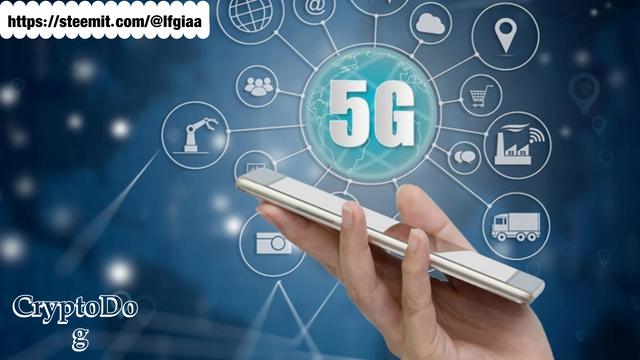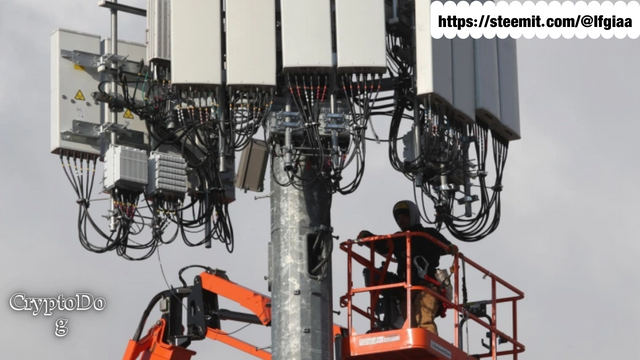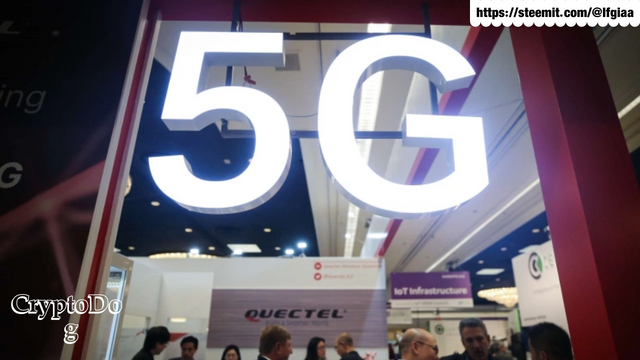The 5G technology raises many questions, and whether you support or oppose the imminent “revolution” of the fifth generation, there is no doubt that it leads to a split in opinion in society as a whole. But what are the facts about her?
The technology "5G" (5G), or the fifth generation, provides the speed of downloading and uploading data from the Internet much faster via mobile phone, and therefore is the next development in communication technology.

Is the fifth generation technology dangerous?
Some consider 5G technology to be dangerous because of new information about the effects of the radiation it emits, and about the risks associated with electromagnetic fields, which have recently been shown to affect living things.
Claims that 5G is generally dangerous rest on two main things. The first is that the fifth generation technology, compared to other current technologies, uses a strong frequency and very high intensity, in addition to its difference in distribution and polarization from the current technologies.
The second is that the 5G waves with a shorter scale do not travel very far, and therefore, a greater number of platforms are needed in a given area to provide a strong signal.
Those exposed to the technology believe this will greatly increase people's exposure to radiation, which is potentially dangerous.

This claim appears convincing. However, like any such claims, there are others who strongly disagree with him. In fact, many proponents of 5G believe that it will not pose any health risks whatsoever.
Some common myths about the fifth generation
Similar to claims about the potential health risks of 5G, there are many other common myths about it as well. Here are some of the most common ones, out of order.
1. Fifth generation technology aims to make smartphones faster
The fifth generation technology is about 100 times faster than the 4G networks. So it will have widespread impacts on many industries, not just smartphones.
Once introduced, 5G technology will greatly increase the effectiveness of the Internet of Things, self-driving cars and robots.
For example, with 5G, robots can reach their full potential in manufacturing and other services such as hospitality.
2. The fifth generation means more data
While there is some truth to this, as we have seen, the real 5G benefit is the reduced latency. In other words, it is not just about the amount of data that you transfer (bandwidth) at any time; But also as fast as you can do it.
Once fully deployed, 5G will be a game-changer for many industries, and should allow for near instantaneous data transfer with clarity (depending on the volume of data). For example, it can help doctors perform surgery remotely using surgical robots.
3. The 5G technology will only affect the telecom industry
The impact of 5G technology will not only be on the telecom industry, it will likely make its way into many other industries, such as entertainment and agriculture. For example, the fifth generation can be used for near-instant communication between different agricultural devices. This will allow one operator to remotely operate various things like harvesters and more.

4. The fifth generation will completely replace the fourth generation
In theory, yes, it can completely replace the fourth generation; But this is not necessarily true. If that happens, most analysts believe there will be decades before the fourth generation becomes extinct.
This is mainly because the 5G requires new infrastructure to build, which will take many years.
5. It will be available to everyone soon
If you live or work in certain areas of major cities, this is somewhat true; But for everyone else, especially in remote parts of the world, it will be some time before the fifth generation reaches them.
Special thanks to
@booming01
@booming02
@booming03
@booming04
Because your support for us is the key for me to continue developing and continuing forward